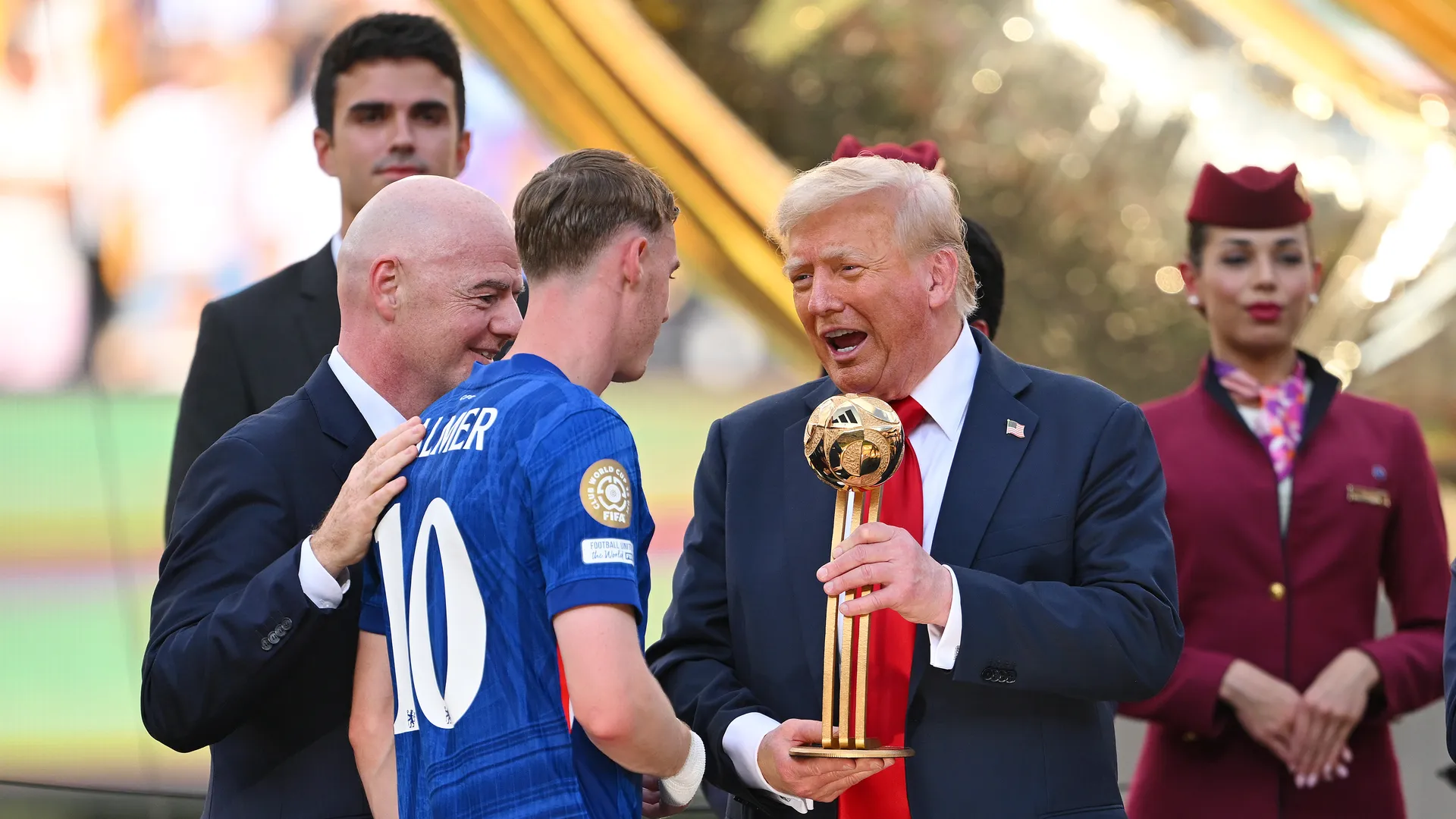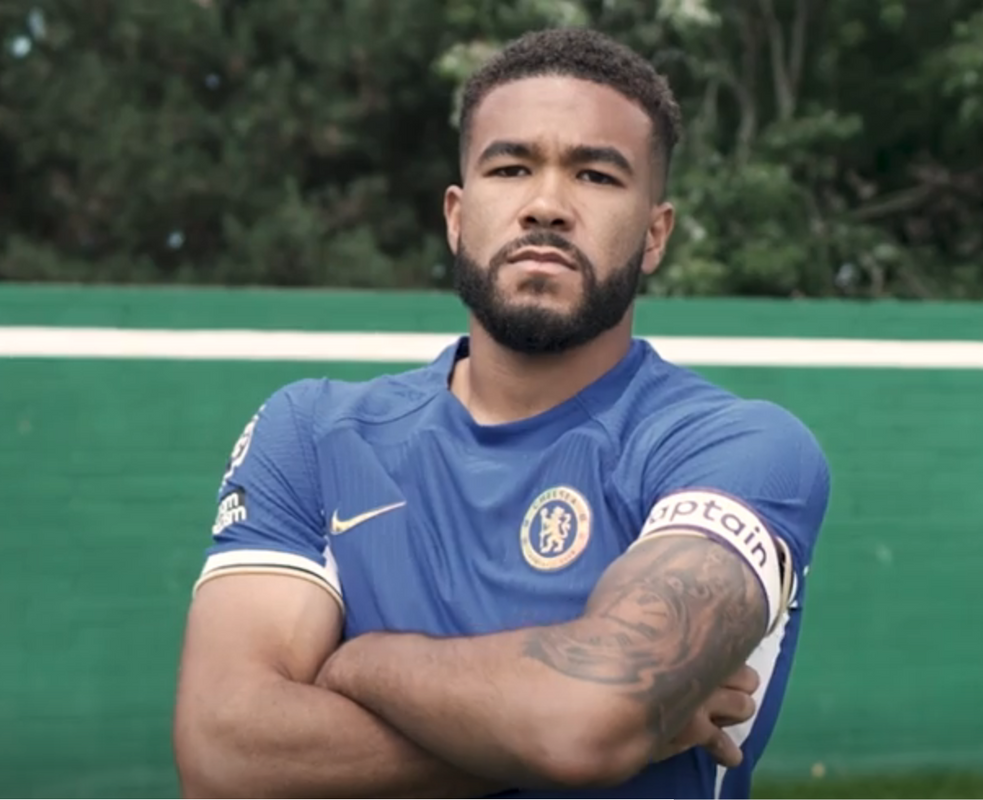In an unexpected twist during the FIFA Club World Cup trophy lift, Chelsea Football Club made a bold statement by minimizing the presence of U.S. President Donald Trump in their celebratory photos. The incident has sparked a wave of commentary, revealing not only the club"s apparent discomfort with Trump"s intrusion but also the broader implications of sports and politics as intertwined forces in America.
Chelsea"s Celebration Turns Awkward
After clinching victory at the Club World Cup, Chelsea players were caught off guard by Trump"s unexpected appearance on stage. According to reports, captain Reece James even urged Trump to leave before the trophy was lifted, highlighting the tension of the moment. The incident has been humorously documented on social media, with fans noting Trump"s awkward positioning amidst jubilant players, dressed in full kit while he stood in a suit.
Social Media Response to Trump"s Presence
After the trophy lift, Chelsea"s official social media accounts posted images that conspicuously downplayed Trump"s role. Instead of featuring the president prominently, the club chose a frame that effectively placed him in the background. This strategic move has generated over 1 million views, with many fans applauding the decision as a necessary step to keep the focus on the team and the trophy. One fan commented, "If you"re honest, no team wants anyone else in the photo when they are raising the trophy. It"s about the players and not some stranger." The digital age has allowed fans to scrutinize and react to such moments in real time, often with humor but also with a critical lens.
\n\n
Trump booed as Chelsea win FIFA Club World Cup final on ...
Implications for Sports and Politics
This incident underscores a significant shift in how sports and politics intersect in the United States. Historically, the sports arena has been a battleground for political expression, as athletes like Muhammad Ali and Colin Kaepernick have demonstrated. The recent awkwardness during the trophy lift serves as a reminder that political figures like Trump can draw backlash when they intrude upon spaces designed for celebration and unity, especially in a sport that is increasingly viewed through a progressive lens.
According to research, sports play a crucial role in shaping Brand America and public diplomacy, especially during Trump"s presidency. As reported by this study, the intertwining of sports and politics often leads to complex narratives that can either bolster or undermine a president"s image. Chelsea"s apparent snub of Trump may not only reflect the players" sentiments but also resonate with fans who value the integrity and spirit of their teams above political affiliations.
Fans Embrace Athlete Activism
As the dynamics of sports evolve, athlete activism continues to gain traction. The incident at the FIFA Club World Cup is emblematic of a growing movement where players are increasingly vocal about political issues, whether it be racial injustice, climate change, or the integrity of their sport. The reaction from Chelsea players, particularly Reece James, indicates a willingness to prioritize the team"s identity over political affiliations.
As reported by BBC, James" attempt to usher Trump off stage speaks volumes about the broader sentiments within sports culture. Athletes are becoming more aware of their platforms and the responsibilities that come with them, challenging the traditional boundaries between sports and social issues.
\n\n
Reece James named new Chelsea captain
Trump"s Role in Modern Sports Culture
The presence of political figures at sporting events has historically been a double-edged sword. While some may view it as an endorsement of American values, others see it as an unwelcome intrusion that detracts from the athletes’ accomplishments. Trump"s involvement in the Club World Cup trophy lift illustrates this tension, as he attempted to align himself with the success of a team that may not share his political views.
This incident raises questions about the role of sports in American society and how political figures can impact the narratives surrounding athletic achievements. As Chelsea has demonstrated, teams have the power to shape their own narratives and define who belongs in their celebratory moments. The club"s decision to downplay Trump"s presence could signal a new era where sports organizations are more assertive in curating their public images and asserting their values.







![[Video] Gunfire between Iraqi security forces and Sadr militias in Baghdad](/_next/image?url=%2Fapi%2Fimage%2Fthumbnails%2Fthumbnail-1768343508874-4redb-thumbnail.jpg&w=3840&q=75)
